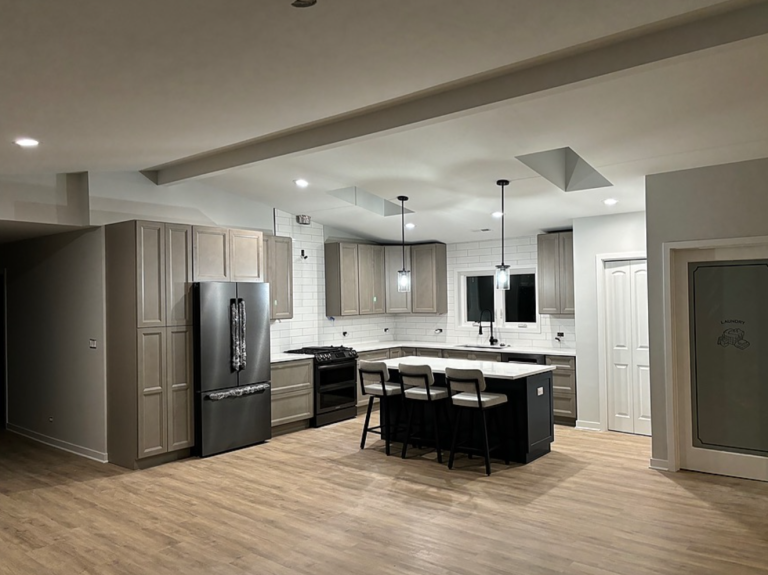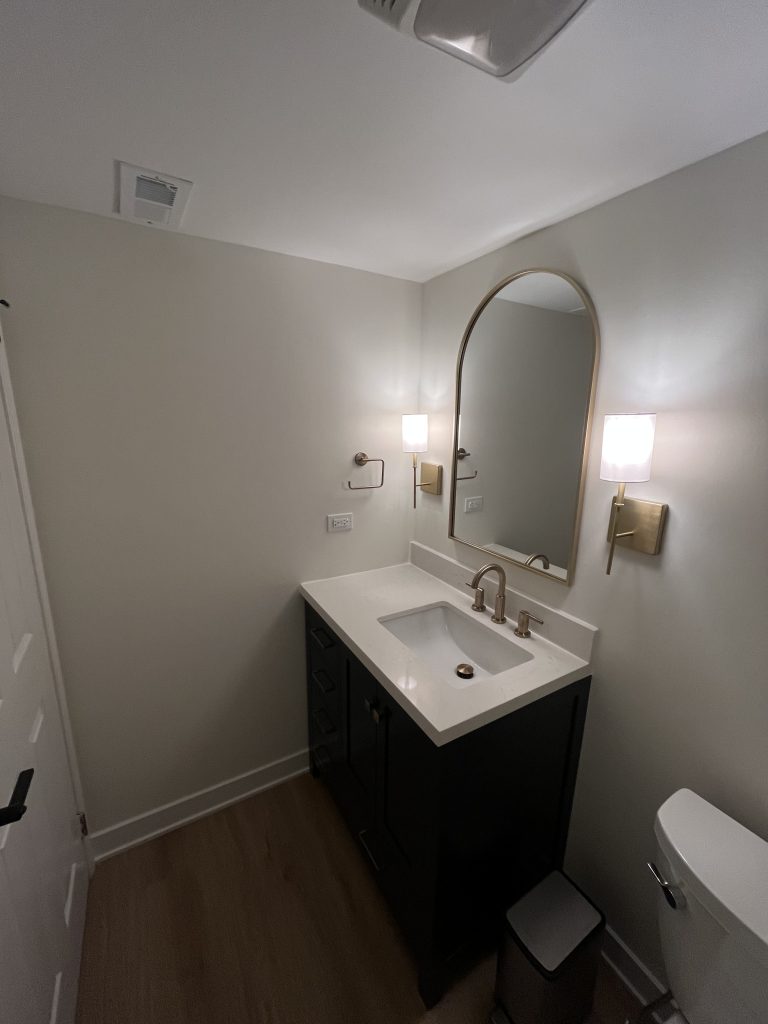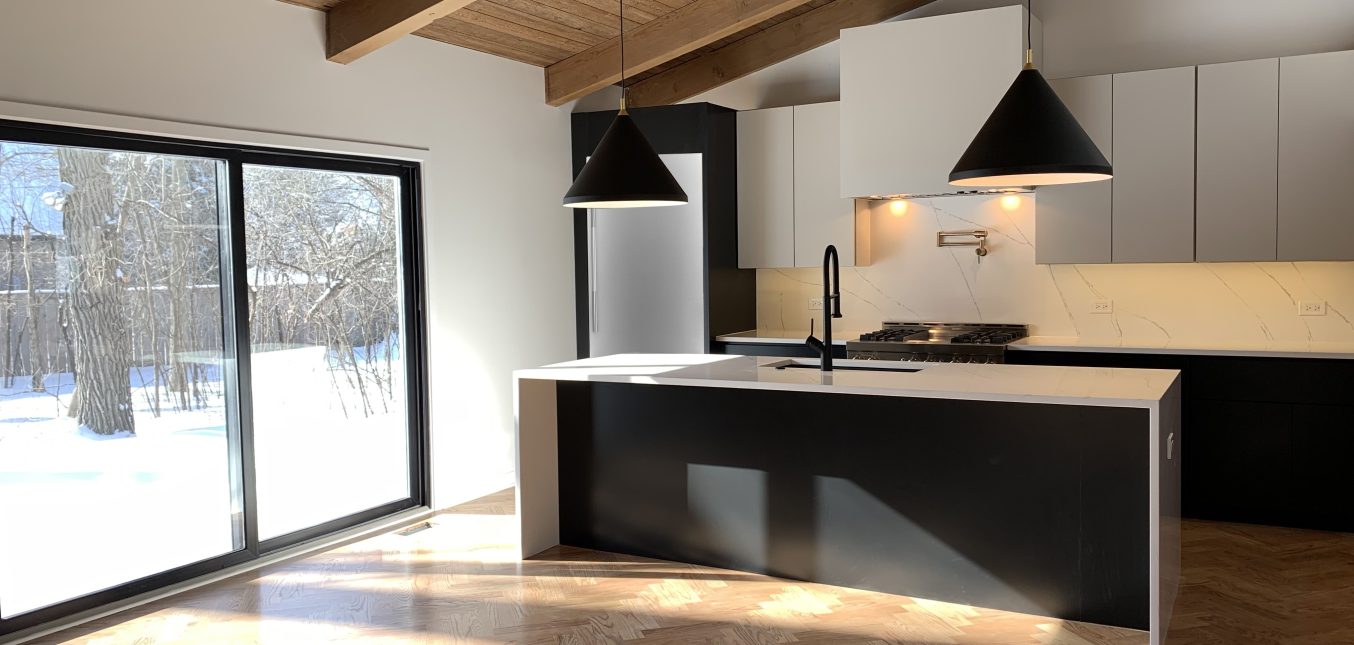Today’s homeowners enjoy versatility when it comes to choosing their flooring materials. Hardwood floors are aesthetically pleasing yet pricey. Vinyl floors are a less expensive alternative but are made of synthetic materials. Homeowners can make the right choice by evaluating the pros and cons of each.
1. Material
Pros: Hardwood floors are constructed out of a solid piece of wood, such as oak or maple. This natural type of flooring can be engineered with multiple layers of plywood beneath a hardwood veneer. Made of wood, hardwood floors offer extra durability.
Cons: Also multi-layered, vinyl flooring is made of synthetic materials. These floors are constructed with plastic, fiberglass, and PVC. Above the core layer rests an image layer that mimics materials, like wood or ceramic. A final top layer protects the sublayers.
2. Cost
Pros: Vinyl is the cheapest material of the two flooring options. Vinyl sheets average $0.50 to $2 per square foot. Tiles and planks are slightly higher at $2 to $7 per square foot. Homeowners who opt for vinyl floors experience the immediate cost savings.
Cons: Hardwood floors are expensive but range dramatically in price based on the type of wood desired. Costly wood, such as mahogany and teak, has a high price point: upward of $25 per square foot. Oak and maple have a price tag of $4 to $14 per square foot, pre-finished.
3. Aesthetics
Pros: Hardwood floors offer a luxurious look. The natural tones and grains of the solid wood are attractive. Depending on the tree used to manufacture the floors, gorgeous reddish hues or pleasant neutrals please the homeowner’s eye. Hardwood floors add a welcoming warmth to the room.
Cons: Vinyl floors that mimic the appearance of natural wood fail to exude as much beauty. The outer layers of synthetic vinyl planks are dyed and textured to resemble even the most expensive wood varieties. Vinyl floors can be convincing, however, requiring a close inspection to notice the difference.
4. Durability
Pros: The lifespan of hardwood floors extends for multiple generations with proper maintenance. Hardwood floors, depending on the wood used and treatment applied, are highly damage-resistant. They can be repaired or refinished for a lesser price than replacing vinyl floors.
Cons: Hardwood floors are prone to water damage. Consequently, they cannot be installed in kitchens, bathrooms, or basements. Damage can occur to the wood from high heels, pet claws, dirt, and debris. Vinyl floors can become scratched or worn and require replacement.
5. Maintenance
Pros: Vinyl floors are low-maintenance. They can be swept or mopped with appropriate cleaning products or vacuumed by disengaging the brush feature. When installed in areas with heavy foot traffic, vinyl floors covered by rugs or runners remain protected from wear.
Cons: Hardwood floors demand extra maintenance. Dirt particles must be swept away regularly to prevent them from scratching the wood. During cleaning, specialized products are recommended to protect the wood from moisture damage. Refinishing the floors is necessary every 10 years.
6. Resale Value
Pros: A home beautifully accented with hardwood floors offers a higher resale value to homeowners who plan to sell in the future. Homebuyers actively seek out homes constructed with hardwood floors for several reasons, including their durability and pleasing aesthetics.
Cons: Most often, vinyl floors don’t contribute to the resale value of the home. Especially when the vinyl floors are low-quality or significantly aged, they can have a negative impact on the home’s resale value. Compared to homes featuring hardwood floors, vinyl floors make properties a harder and slower sell.
7. Environmental Impact
Pros: Hardwood floors, constructed from natural wood, have a low environmental impact. As a natural material, the wood is also a renewable resource. The Forest Stewardship Council certifies particular wood varieties that have the least negative impact on the environment.
Cons: Manufactured largely out of PVC resin, vinyl floors are the least environmentally friendly. PVC products, including vinyl floors, are known to emit volatile organic compounds. Unlike hardwood floors that can be recycled upon removal, vinyl floors made of PVC cannot.
8. Installation
Pros: Vinyl flooring is so easy to install that homeowners can perform this task themselves and save on installation costs. The planks and tiles usually lock together. Other vinyl flooring types may require simply gluing the floor in place or utilizing the peel-and-stick method.
Cons: Installing hardwood floors requires more expertise as it involves cutting the baseboards, filling holes with putty as well as positioning the planks correctly, drilling, nailing, and stapling. Although it’s more costly, a professional contractor is recommended for proper hardwood floor installation.
Both hardwood and vinyl flooring offer unique pros and cons. The best choice depends on the homeowner’s goals, whether that involves making a large initial investment in hardwood floors to experience benefits in the long-run or simply wanting an affordable flooring option with vinyl floors.
Once you settle on your preferred type of flooring, you’ll need a licensed and insured contractor to install it. R3 Contracting offers high-quality flooring installation services to residential homeowners aiming to upgrade their existing flooring and seeking a dependable contractor.
The installation process starts with us understanding your vision for your home. Upon speaking with our design team to learn your style preferences, we obtain the flooring materials of your choice. Our trade contractors immediately begin the installation of the flooring.
R3 Contracting presents homeowners with various flooring solutions. Our specialists are available to install not only hardwood and vinyl flooring but laminate floors, porcelain tiles, linoleum, concrete, natural stone, and bamboo. Our diverse flooring options highlight the beauty of your home.
We offer highly personalized installation services to ensure your satisfaction with the flooring you choose. Our team can advise you on the best flooring materials for each room in the home. R3 Contracting’s practical guidance plus high-quality workmanship deliver exceptional results.
When you are considering replacing your floors, choose the flooring contractor that residential property owners trust: R3 Contracting. We serve homeowners in Hoffman Estates and Schaumburg, Illinois. Contact us today to experience the impeccable workmanship that leads to stunning, long-lasting floors.
Related Posts

Timeless Kitchen Designs That Won't Go Out of Style

What is the Difference Between Trex Composite Deck Boards and Wood Boards?


